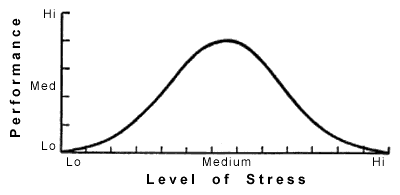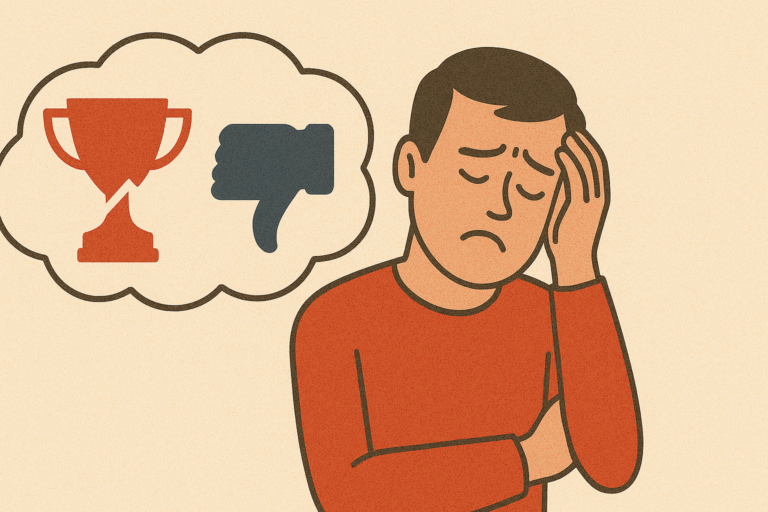Emotions vs. Expectations
We never live; we are always in the expectation of living. — Voltaire
 Expectations are more powerful than you believe.
Expectations are more powerful than you believe.
Sure, you may be familiar with the placebo effect, where 35% of participants who expect sugar pills to be actual pain medicine feel actual relief. Or maybe you’re familiar with the effects of self-fulfilling prophecy, where, for example, you expect you’re not very good at math, so you don’t try very hard at it, and subsequently do poor at it. (Compared to if you had simply tried in the first pace.)
But still, there has to be certain parts of our psychology that are immune to expectations. Regardless of how you expect something to influence you, it will influence you as it would any person. And if there were one candidate for such a thing, you probably already know what it is:
Your emotions.
EMOTIONAL INFLUENCE

Or maybe not. For as we like to do on this site, let’s challenge your preconceptions (dare I say it, expectations) and see what the research really has to say…
Let’s use anger as our example emotion. It’s likely a feeling you get while driving in Ohio, watching Game of Thrones, or even stepping on your dog’s squeaky toy at 3 in the morning before jumping your head into the doorframe.
Now, when we consider the research on anger, we often find that it produces the steam-from-the-ears kind of aggression we’re used to. For example, when participants get angry at another participant in an experimental context, they’re more willing to punish the other person by “blasting them” with uncomfortably loud sounds or forcing them to eat uncomfortably hot salsa (science has to use proxies for “punching someone in the face”).
But just as anger can augment aggression, research shows it can also lead to acting more pro-socially, too (i.e., behaviors that help others). For example, when participants get angry at seeing another person being treated unfairly, the participant is more likely to use their own resources to sympathetically reward the victim rather punish the perpetrator. Other research shows a similar pattern, where anger makes us kinder rather than more aggressive.
IT’S IN THE EXPECTATION
In research that came out just this year, social scientists had participants engage in a negotiation scenario with another person. Beforehand, though, they had participants (1) read a brief report that described anger as either being helpful or not, and then (2) had participants listen to angry or neutral music. Afterward, the participants played a money negotiation game.
Interestingly, researchers found that anger only improved negotiation performance (i.e., the participant made more money) when they expected anger to improve their abilities.
In another study (on another set of emotions), researchers had participants engage in a creativity task. Here, they either told participants that excitement resulted in greater creativity or calmness resulted in greater creativity. And impressively, excitement led to more creativity when participants expected it to improve their creativity, but calmness led to enhanced creativity when participants expected it to improve creativity.
 EXPECTATION AWARENESS
EXPECTATION AWARENESS
Today’s post highlights the importance of introspection and awareness of our emotions. For example, if you expect anger to make you want to punch a wall, then you’re likely to do that. But if instead, what if you expect anger to make you want to go on a walk instead?
Emotions have powerful psychological influence over our behaviors, but expectations have the ability to redirect and drive those emotions toward more beneficial outcomes. And it is you who has the power over your expectations.
Expectedly,
jdt
Everyday Psychology: Our expectations for our emotions largely come from our environments. Be it the TV we watch or the friends we keep, we learn how to manage and express our emotions from the people and culture around us. In which case, how does your own expression of your emotions influence others’ expectations? Specifically, children? If your child or someone else’s sees you go into a flipping rage versus a quiet silence when angry, what kind of expectations will they form for their own anger-behavior? What about other emotions? And what about those besides children? Employees in a new workplace or friends in a new friend group will adopt expectations for how their emotions should inform their behaviors in these novel contexts.
Lotz, S., Okimoto, T. G., Schlösser, T., & Fetchenhauer, D. (2011). Punitive versus compensatory reactions to injustice: Emotional antecedents to third-party interventions. Journal of Experimental Social Psychology, 47(2), 477-480.
Tamir, M., & Bigman, Y. E. (2018). Expectations Influence How Emotions Shape Behavior. Emotion, 18(1), 15-25.
Van Doorn, J., Zeelenberg, M., & Breugelmans, S. M. (2014). Anger and prosocial behavior. Emotion Review, 6(3), 261-268.









